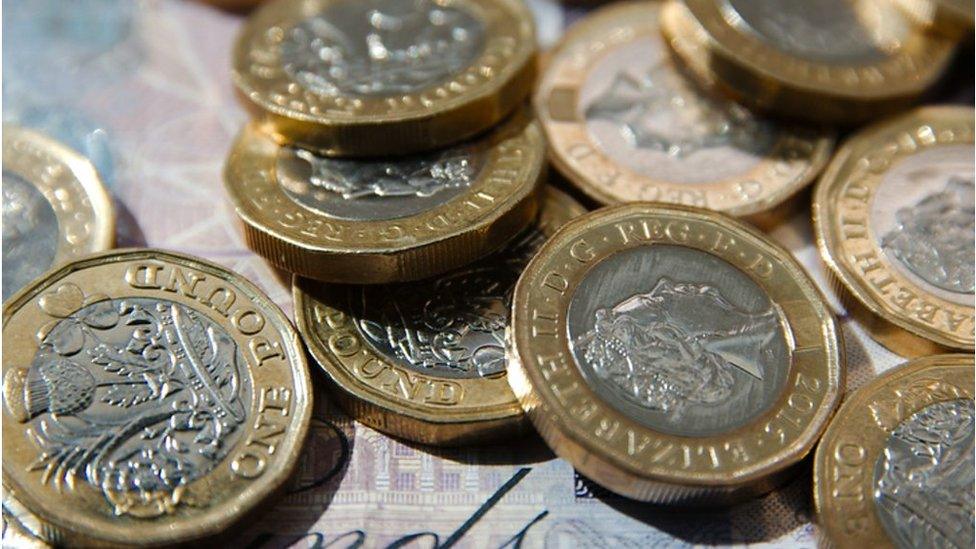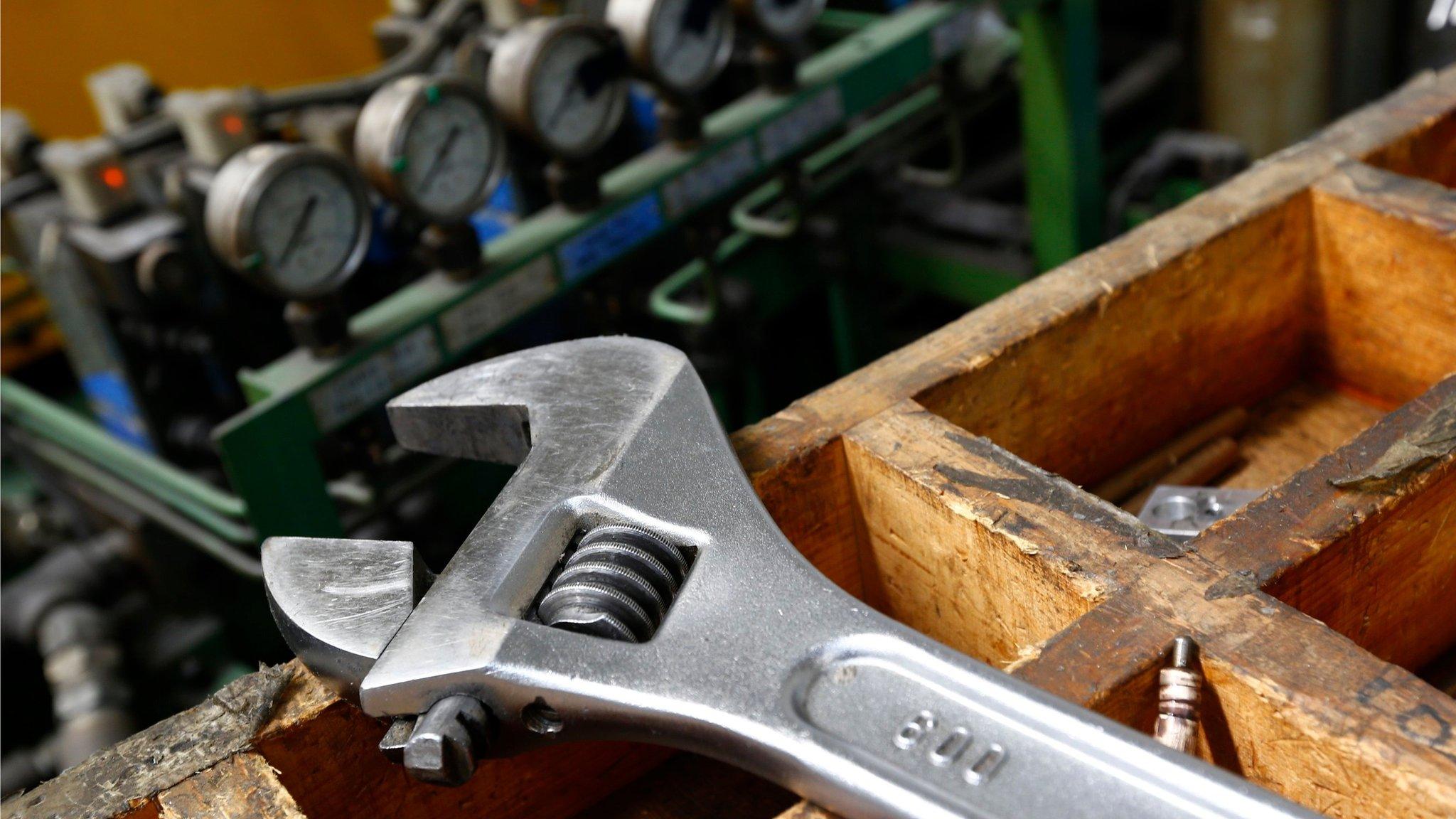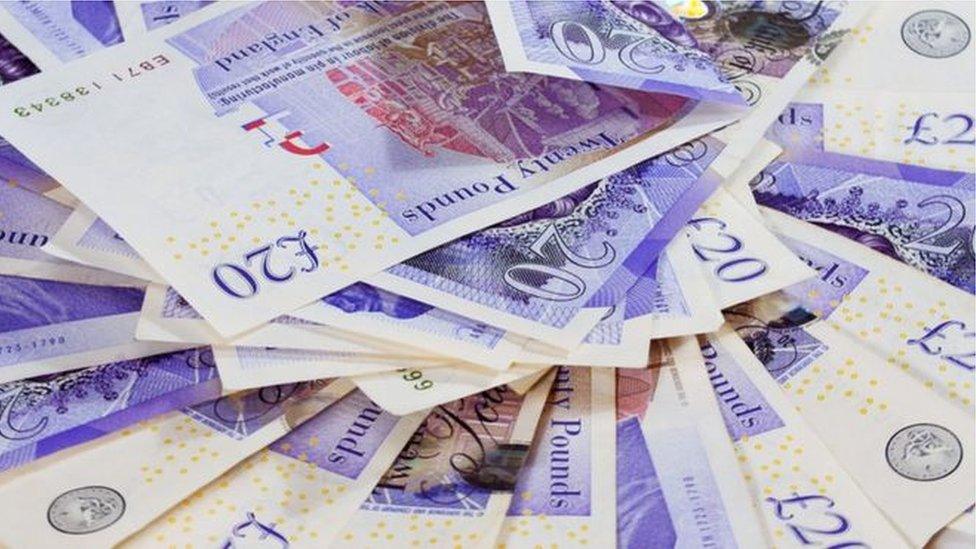Northern Ireland economy weakened over past quarter, says Ulster Bank
- Published
- comments
"Retail performed particularly badly," says BBC News NI's John Campbell
Northern Ireland's economy appears to have weakened significantly over the past three months, research from Ulster Bank has suggested.
The bank conducts a monthly survey of private sector activity in what is considered a reliable indicator of the economy.
April saw a contraction in new orders, exports, employment and overall output.
That follows a fall in output in March and a weakening employment performance since the start of the year.
Richard Ramsey, the bank's chief economist, said it was the sharpest fall in business activity since the end of 2012.
"April saw an improvement in business conditions across most of the UK regions," he said.
"However, Northern Ireland was a notable exception to this trend.
"Rather than improving, the pace of contraction across a range of indicators accelerated."
He added that Brexit and the lack of a Northern Ireland Executive continued to be cited as factors negatively affecting business.

Richard Ramsey said it was the sharpest fall in business activity since the end of 2012
As in March, manufacturing was the only sector to record an expansion in output.
By contrast, the data for retail sales was the worst in almost seven years.
Mr Ramsey said that the survey should not be interpreted as a clear sign of the beginning of a downturn as Brexit factors could be responsible for volatility in some company performances.

Is this apparent weakening down to Brexit?
By John Campbell, BBC News NI Economics and Business Editor
A modern economy is a complex, dynamic system - changes are rarely about one factor.
However, it is clear that Brexit is having an impact in some areas - particularly business investment.
But there are other forces shaping our economy - for example, retailing is in the throes of technologically-driven change, which has nothing to do with Brexit.

Official data for the whole of the UK, published last week, suggested the economy picked up in the first three months of the year after manufacturers' stockpiling ahead of Brexit helped to boost growth.
Growth was 0.5% in the quarter, up from 0.2% in the previous three months, the Office for National Statistics (ONS) said.
The manufacturing sector grew at its fastest rate since 1988 in the period.
The ONS said this was driven by manufacturers rushing to deliver orders before the original Brexit deadline of 29 March.
Pharmaceuticals was one of the sectors most affected, expanding 9.4% between January and March.
Previous business surveys had shown manufacturers stockpiling goods for Brexit in case the UK left the EU without a transition deal, which they feared could lead to delays at UK borders.
- Published13 May 2019

- Published12 April 2018

- Published20 February 2019
